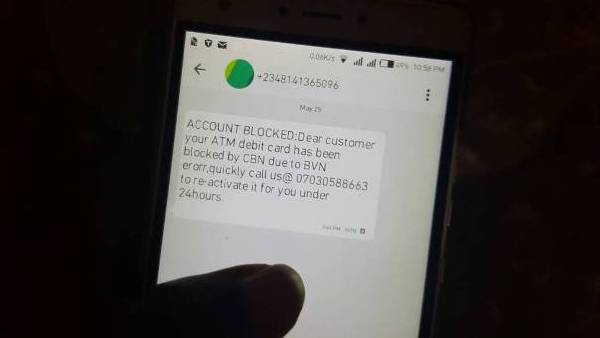You could have been the victim of this terrifying crime or had calls from some fraudsters, or most probably know someone who has been.
Usually, they will tell you they are your friend abroad and ask you to guess their names or even tell you they work with Dangote cement that there is this contract on offer they want you to grab.
There are so many phone scams these days that you would think the Nigerian Communications Commission Do-Not-Disturb policy is mere child’s play.

It is like clockwork. You sit down to eat dinner and your phone starts ringing incessantly or some disturbing text messages start bumping in for you to call a certain number to re-activate your Bank Verification Number (BVN).
Of course, they want your money. You might think, “how can anyone be tricked by these people?”
Well, it turns out that they use scientifically proven techniques to convince you or your elderly loved ones, that they are who they claim to be. They will convince you that they are trying to be helpful. They will even tell you they know you from your place of worship.
There are six techniques they use to convince you to give them your money. Do you know these six tricks?
6 tricks phone scammers use
We do not want you to be the next victim of a phone scam. Nigerians lose millions of nairas every year to phone scams.
Here are six ways they convince you to pay up.
- They will call, tell you they are your friend abroad and ask you to guess their names or tell you “you need to re-activate your BVN”
- Any name you mention, they will go with it, and they will make you start even talking about the person you mentioned (that they do not know) the more. Then they will mention your names and share information about you to gain your trust
- They will welcome your skepticism, saying they understand your concerns
- Scammers will lie about who they are, and where they work, whether they say they are with Zenith, GTB, or Fidelity banks or they will tell you they are Dangote staffs, or some other reputable companies
- They will take their time to explain who they are and why they are calling
- They will ramp up their pressure and threats by changing the tone of their voice, especially when the narration is not going as they have planned it
It is really important that you never share personal information, such as your address, with anyone over the phone. Of course, never give your credit card information or bank account numbers to anyone, unless you contact them first.
How to outwit phone scammers
- Stay cool, be in control of the phone call
- Do not let them rush you. At least waste the scammer’s airtime — a call offering a 10 million naira contract should last at least 5 or more hours (i.e. if you have the time anyways)
- But, most importantly, pay attention to your intuition
The most effective tool you have with phone scams is your power to hang up. If someone starts asking you for personal information or for money, immediately hang up.
If you are worried that the person calling could have been from your bank, go to your bank; or from a reputable company, find the genuine website of the company and look for contact information. Then, you call them.
Read: Best way to block spam calls on your Smartphone
You would want to share this information with your loved ones; use the share buttons below.




